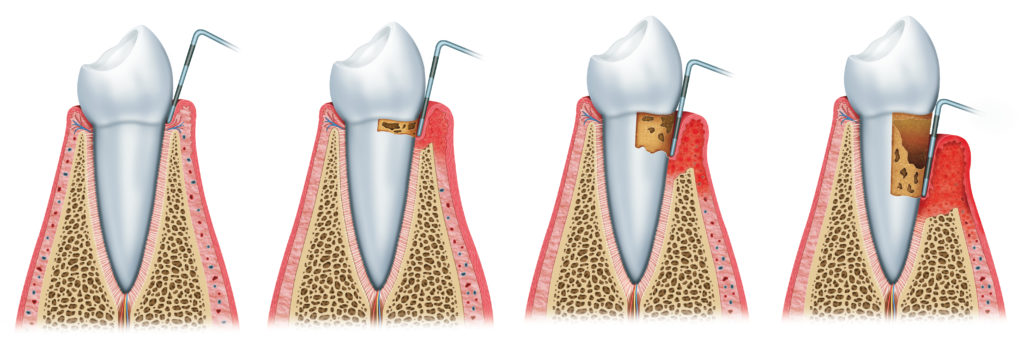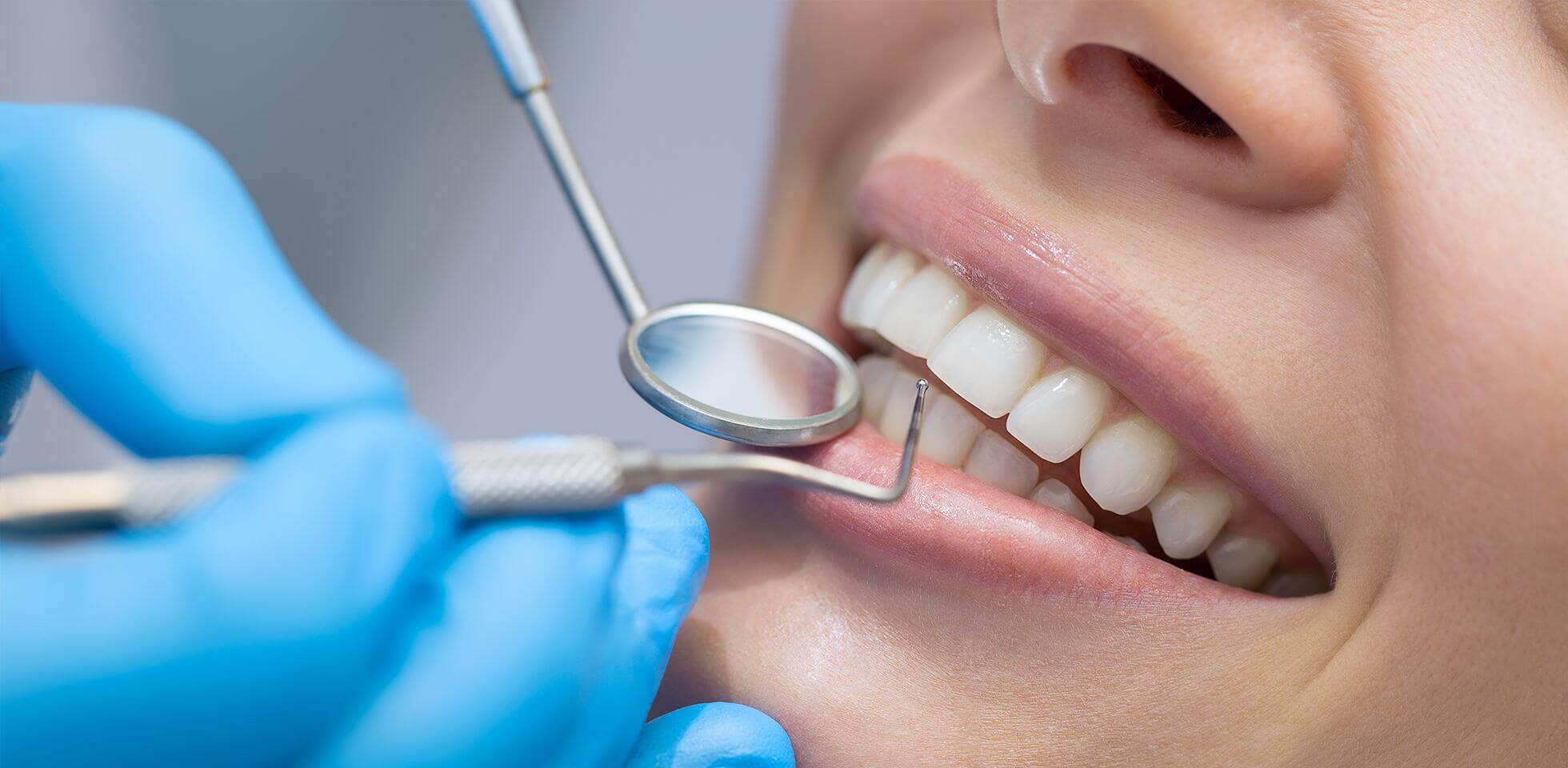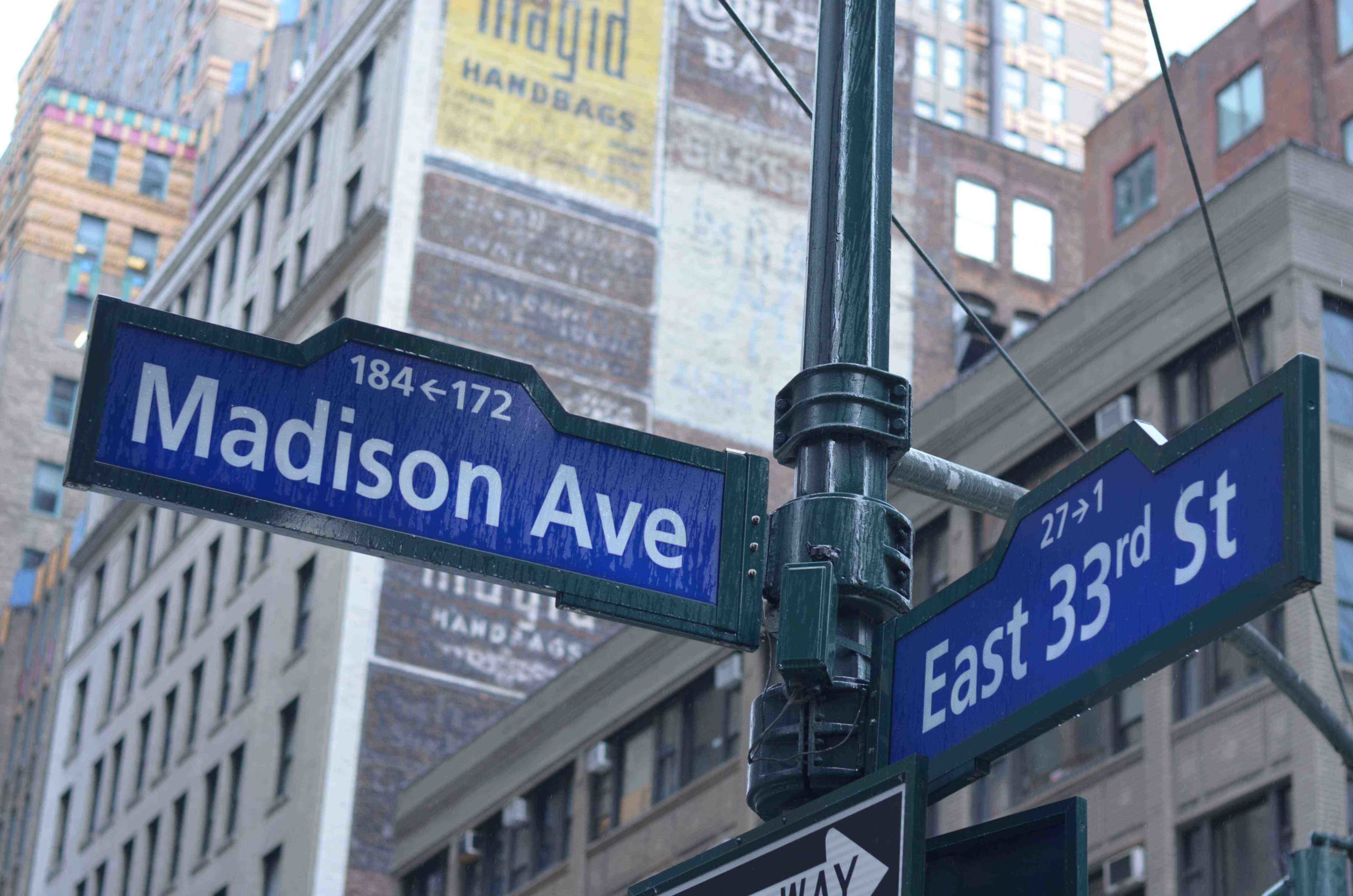Dental Deep Cleaning for New York City Patients
Even with regular brushing, tartar and plaque buildup can occur over time. Dental deep cleaning is a nonsurgical periodontal treatment, and it is the best way to remove plaque and tartar buildup missed by your toothbrush. This treatment consists of two techniques — scaling and root planing. Both are utilized to reach below the gum line, remove tartar, and eradicate the bacteria that tend to build up near and around the roots of teeth.
Scaling removes bacteria buildup from below the gum line. Root planing is a technique used to smooth rough patches that may develop on the surface of the root area so that bacteria have fewer places to grab onto the teeth.
After your regular dental checkup, your dentist and hygienist will let you know if a deep cleaning is recommended. This treatment is an affordable option that can help prevent more serious periodontal problems down the road. This problem is called periodontitis. Periodontitis is a serious gum infection that damages the gum and can destroy the jawbone that holds the teeth in place. So advanced periodontitis can lead to tooth loss; it has also been shown to be a risk factor in heart and lung disease.
Patients present with varied histories. Some people tell us that when they brush there is a lot of bleeding; in severe cases, people wake up with blood on their pillowcases. Another common symptom is that patients see more length in their teeth, the roots are being exposed, the gums are receding. Some complain of shifting, spacing, chipping, and mobility of their teeth. A classic symptom is bad breath or a bad taste in their mouth. Patients relate that loved ones and coworkers pull away from them when they are trying to speak with them.
Periodontal Pockets

Eventually, patients will come to the dentist. They will have an initial exam, x rays, and gentle dental probing. The probing is an instrument that measures in mm. The depth of the pocket around the tooth. A pocket is the distance from the tip of the gum line to where the actual bone is, that is supporting the tooth. The deeper (greater in depth than 4mm) the pocket the more serious the condition. These pockets harbor disease. Food debris and bacteria combine to form enzymes that can erode the enamel of the tooth (cavities); additionally, the enzymes eat away at the bone. As the bone loss increases the pocket depth increases, the tooth becomes looser and the infection progresses.
The good news is that this very common disease is both preventable and treatable. It has been found that with proper, diligent home care ( brushing, flossing, diet) and routine checkups at the dental office, periodontitis can be stopped from occurring and treated rather easily.
Dental deep cleaning in NYC is a conservative, expeditious procedure to prevent and control periodontal disease.
If periodontal disease is very advanced our periodontist, Dr. Wang is very adept at performing surgical procedures known as gingivoplasty, gingivectomy, bone and tissue grafts. He does this under local anesthesia with surgical instruments and on occasion with a laser. At times he will prescribe oral antibiotics, mouth wash (chlorhexidine), and Arestin Therapy. Arestin is a tetracycline antibiotic (minocycline) that is placed into the pockets following dental deep scaling and cleaning. It takes about 7-14 days for the antibiotic to show results. During this period we ask patients to rinse their mouth with a prescription rinse called Peridex (chlorhexidine).
If diagnosed with periodontal disease there are some foods that should be avoided. These include fried/greasy foods, citrus fruits, sugar, pickled vegetables, alcohol, potato chips and black tea.
Additionally, if you have undergone dental treatment for periodontal disease, during the first two weeks, which we refer to as the “healing stage”, we would like our patients to avoid seeds, nuts, popcorn, or any food that can be broken into small hard pieces and get caught under the gum.
Call to Schedule an Appointment
What to Expect at Your Dental Deep Cleaning Appointment
Our hygienists perform dental deep cleaning alongside our board-certified periodontist. In general, this treatment requires two visits to complete.
If you are apprehensive about discomfort, remember that root planing and scaling can be performed using a local anesthetic. This measure is especially beneficial for patients with inflamed gums. Most patients, however, do well with just a topical desensitizer.
During your deep cleaning procedure, special instruments called scalers and root planers will reach below the gum line to remove tartar, plaque, and bacteria. Additionally, the root surface will be smoothed so that it will be difficult for bacteria or food debris to adhere in the future.
This method helps restore the health of both gum tissue and teeth. Once your dental deep cleaning is complete and all debris is removed, Arestin may be placed on the treated areas. This special antibiotic helps kill bacteria that are difficult to reach with our instruments and protect against gum disease progression.











